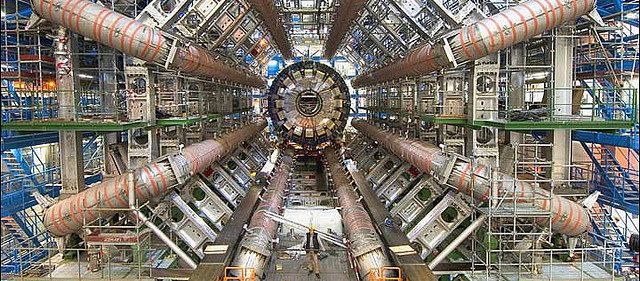Higgs boson steals the show at AAAS meeting
Scientists promise new results on the God particle in the next few months
Share

Kate Lunau is covering the 2012 annual meeting of the American Association for the Advancement of Science in Vancouver, a gathering of some of the world’s finest brains and celebrities of science. On Feb. 16-20, Lunau will bring you a sneak peak of the latest research and findings, posting to Macleans.ca on anything from healthcare and climate change, to food security, and more. Follow Kate on Twitter: @Katelunau, #AAAS, #AAASmtg.
Read Kate’s intro to the AAAS; and about a new theory on the acoustics of Stonehenge.
The AAAS meeting began at the crack of 8 a.m. today, with seminars, symposiums and press briefings already competing for attention. One big announcement came not from Vancouver, but Geneva: World Health Organization officials agreed to extend a temporary moratorium on research into a lab-modified strain of the H5N1 flu virus, which will keep the controversial work secret for now. A morning meeting to talk about the decision had to compete with another star attraction: a briefing about the latest results from the Large Hadron Collider and Fermilab, which is where I ended up.
Rob M. Roser of Fermilab, Sergio Bertolucci from CERN, and Lia Merminga of the TRIUMF lab in Vancouver, who designs particle accelerators, were all there. Roser tantalizingly suggested we’d have some results about the Higgs boson, a hypothetical particle, within the next months or so—whether we actually see it, or not. And when asked about the faster-than-light neutrinos that were such a sensation last year, Bertolucci charmingly joked that he struggled to believe it because in his native Italy, “nothing arrives on time.” Over the next few months, independent experts will be rechecking and examining them further, he said. Merminga, meanwhile, pointed out that there are over 24,000 accelerators around the world, used for everything from medicine and energy to security and the environment, including Vancouver’s own at TRIUMF.
Talk of the Higgs Boson and neutrinos stole the show this morning, but even so, there was plenty of other new research on display. University of British Columbia professor Janet Werker presented findings on how babies learn, suggesting that the crucial period in which they attune to their native language could change due to factors like maternal depression, or whether they grow up in a bilingual household.